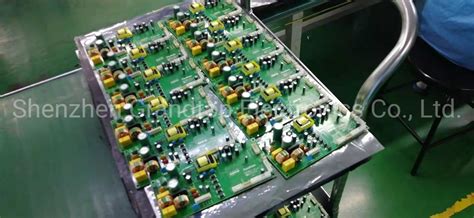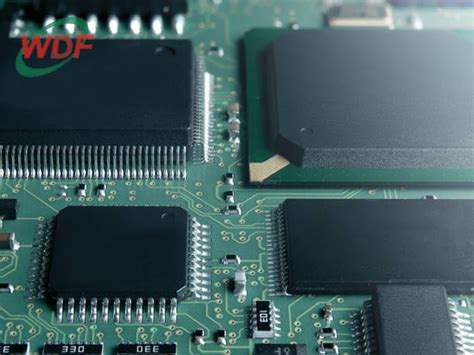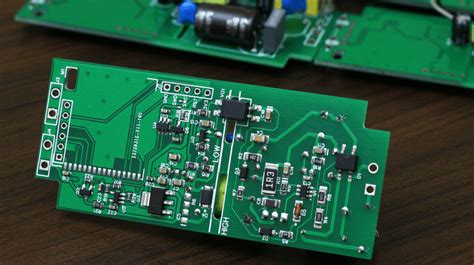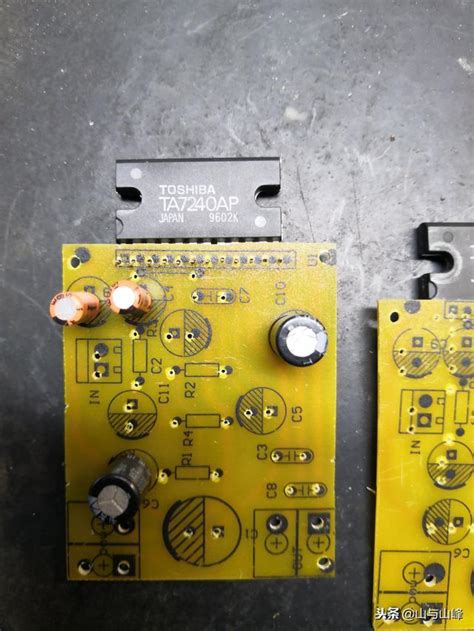Unlocking Efficiency: The Rise of Turnkey Assembly Services
Key Takeaways
Turnkey assembly services are redefining the landscape of manufacturing efficiency as businesses increasingly turn to these comprehensive solutions to enhance productivity. One significant aspect of this transformation is the integration of pcb assembly processes, which streamline complex production tasks into a single, cohesive operation. By outsourcing pcba to specialized providers, manufacturers can focus on their core competencies while reaping the benefits of improved operational workflows. These services not only shorten production timelines but also allow for a higher degree of flexibility in response to market demands. Furthermore, companies can leverage turnkey assembly services to implement cost reduction strategies, as the elimination of redundant processes leads to significant savings in time and resources. As businesses continue to adopt these innovative solutions, the advantages become increasingly evident—ultimately facilitating a smoother transition and greater competitiveness in a fast-paced market environment.
Understanding Turnkey Assembly Services: A Comprehensive Overview
Turnkey assembly services are reshaping the landscape of modern manufacturing, offering a holistic solution that streamlines the process from design to delivery. At its core, a turnkey assembly solution simplifies production by providing a completed product ready for market use, effectively removing the need for manufacturers to manage multiple suppliers. This approach is particularly beneficial in areas such as PCB assembly and PCBA, where precision and integration play crucial roles.
By outsourcing assembly tasks, businesses can leverage the expertise of specialized service providers, enabling them to focus on their core competencies. The advantages include reduced lead times and enhanced quality assurance, as these partners often implement best practices and streamlined operations derived from extensive industry experience. Furthermore, utilizing turnkey services allows manufacturers to optimize their workforce allocation—shifting resources from assembly tasks to design and innovation processes.
In terms of operational efficiency, adopting turnkey assembly services translates into a more agile production line capable of adapting to market demands swiftly. In the following sections, we will explore in detail the key benefits these services bring to manufacturers and how they are transforming industrial operations across various sectors.
“Investing in turnkey solutions not only saves time but also enhances overall product quality—an essential factor in today’s competitive market.”
Key Benefits of Turnkey Assembly Services for Manufacturers
Turnkey assembly services offer a range of key benefits that can significantly enhance the operational efficiency of manufacturers. By providing comprehensive solutions from design to delivery, these services allow businesses to focus on their core competencies while outsourcing complex tasks. One major advantage is the reduction in production timelines; with a streamlined process that integrates both pcb assembly and packaging, manufacturers can respond more rapidly to market demands. Moreover, the use of pcba services ensures that quality control is maintained throughout the assembly process, leading to fewer defects and enhanced product reliability. Another notable benefit is cost efficiency; businesses can significantly lower their overhead by eliminating the need for in-house assembly and employing specialized teams with expertise in turnkey solutions. This not only results in lower labor costs but also allows companies to leverage advanced technologies and best practices without hefty upfront investments. Ultimately, adopting turnkey assembly services empowers manufacturers to enhance their competitiveness through optimized workflows and cost-effective production strategies, paving the way for long-term success in a rapidly evolving market.
The Impact of Turnkey Assembly on Production Timelines
Turnkey assembly services have significantly altered the landscape of manufacturing, particularly in the realm of pcb assembly and its related processes. By providing a comprehensive solution that encompasses design, sourcing, assembly, and testing, businesses can achieve greater reliability and faster output. This holistic approach allows manufacturers to reduce production timelines drastically. PCBA, or Printed Circuit Board Assembly, is streamlined as these services handle various stages of the assembly process, eliminating delays often associated with juggling multiple vendors or service providers. The efficiency gained through turnkey solutions helps teams focus on their core competencies while ensuring that all components are assembled with precision. As a result, products reach the market quicker and meet customer demands more effectively. Moreover, by minimizing disruptions in the assembly line and optimizing workflow, companies are witnessing a significant reduction in downtime. The ability to quickly adapt to changes in demand and respond to market fluctuations enhances overall competitive advantage. Thus, turnkey assembly not only accelerates production timelines but also fosters a culture of innovation within manufacturing environments where responsiveness is critical for success.
Streamlining Operations: How Businesses are Adopting Turnkey Solutions
In today’s competitive landscape, businesses are increasingly recognizing the value of turnkey assembly services as a means to enhance operational efficiency. These services provide a comprehensive solution that allows companies to outsource the entire assembly process, from design to delivery. For manufacturers specializing in pcb assembly and pcba, the adoption of turnkey solutions simplifies workflows and minimizes the complexity associated with supply chain management. By leveraging these services, organizations can focus on their core competencies, thereby streamlining operations and accelerating production timelines. Moreover, turnkey solutions often come with advanced technology and expertise, which can lead to higher quality outputs and improved product consistency. This shift towards outsourcing assembly not only reduces overhead costs but also provides businesses with the agility needed to respond quickly to market demands. As more companies embrace these innovative approaches, they continue to transform their manufacturing practices while reaping substantial benefits from enhanced productivity and reduced lead times.
Cost Reduction Strategies Through Turnkey Assembly Services
In today’s competitive manufacturing landscape, companies are increasingly turning to turnkey assembly services as a strategic solution for cost reduction. By outsourcing the pcb assembly process to specialized providers, businesses can significantly minimize their overhead expenses related to labor, production space, and equipment maintenance. These services offer an all-in-one approach that encompasses everything from initial design to final assembly, allowing manufacturers to avoid the costs associated with managing multiple vendors or service contracts. Moreover, utilizing turnkey assembly services facilitates quicker turnaround times for production, thereby enhancing operational efficiency and enabling companies to adapt rapidly to changing market demands.
The integration of pcba processes into the supply chain not only streamlines manufacturing operations but also contributes to cost efficiency by reducing waste and optimizing resource utilization. As manufacturers leverage these services, they can focus their internal resources on core competencies rather than being bogged down by the complexities of assembly logistics. This holistic approach fosters a more agile business model, allowing firms to bring products to market faster while maintaining quality and controlling expenses. As a result, embracing turnkey assembly services becomes not just a cost-saving measure but also an avenue for sustainable growth and innovation within the manufacturing sector.
Case Studies: Success Stories of Turnkey Assembly Implementation
The implementation of turnkey assembly services has led to remarkable improvements across various sectors, notably in pcb assembly and pcba processes. For instance, a prominent electronics manufacturer faced challenges with escalating production costs and tight deadlines. By integrating a turnkey solution, they streamlined the entire process, from sourcing components to final assembly, significantly reducing lead times. This not only enhanced their production efficiency but also lowered their operational costs by approximately 20%. Another example is an automotive supplier that adopted turnkey assembly services to address the complexities of their supply chain. By leveraging these services, they were able to coordinate assemblies more effectively, ensuring that components arrived just-in-time for production. This move reduced excess inventory and minimized waste—a crucial factor for sustainability in modern manufacturing. Overall, these success stories illustrate how businesses are directly benefiting from the efficiencies and cost-saving opportunities presented by turnkey assembly, paving the way for enhanced competitiveness in a rapidly evolving market landscape.
Future Trends in Turnkey Assembly Services and Manufacturing Efficiency
As the manufacturing landscape continues to evolve, turnkey assembly services are poised to play a pivotal role in driving efficiency. Embracing advanced technologies, such as automation and data analytics, is becoming increasingly essential for manufacturers looking to enhance their productivity. The rise of pcb assembly processes integrated with turnkey solutions ensures that businesses can efficiently produce high-quality components while minimizing waste. Additionally, as demand for customized products grows, the ability to swiftly adapt production lines will be a critical necessity. Companies leveraging this flexibility in their operations can optimize their pcba processes, reducing lead times significantly. Moreover, as sustainability becomes more ingrained in industry standards, turnkey assembly services are likely to incorporate eco-friendly practices into their standard operations, reinforcing the importance of social responsibility while maintaining cost-effectiveness. The future will likely see an increase in collaboration between manufacturers and turnkey service providers to create more unified production ecosystems that not only meet market demands but also foster innovation within the sector.
Overcoming Challenges in Transitioning to Turnkey Assembly Models
Transitioning to turnkey assembly services presents its own set of challenges that manufacturers must navigate to fully harness the benefits of this approach. One significant hurdle is the integration of pcb assembly processes into existing production lines. Many manufacturers have established workflows that may not readily accommodate the streamlined nature of pcba services. To overcome this, a careful evaluation of current operations is essential. Optimizing machine layouts and retraining staff can facilitate smoother transitions, ensuring that everyone understands the intricacies of the new models.
Furthermore, selecting a reliable service provider is paramount. The quality and consistency of pcb assembly outputs can vary significantly across vendors, so it is crucial to conduct thorough assessments prior to partnering with any pcba specialists. Manufacturers should seek providers with a solid track record and expertise relevant to their particular needs.
Another challenge is ensuring effective communication between stakeholders involved in the process—ranging from design engineers to assembly line workers. Establishing clear lines of communication and utilizing project management tools can aid in addressing any issues promptly as they arise, ultimately facilitating a smoother transition.
Lastly, adapting to the shift in management strategy can be daunting for some companies accustomed to traditional models. Emphasizing continual learning and flexibility within corporate culture will help teams embrace this change positively, making the adoption of turnkey solutions much more effective in enhancing operational efficiency and productivity.
Conclusion
In summary, the growing adoption of turnkey assembly services has become a pivotal element in modern manufacturing. These services not only encapsulate the entire assembly process but also enhance efficiency significantly, especially in complex fields like pcb assembly and pcba. By integrating all required components and labor into a single cohesive package, businesses can streamline their operations effectively. This transition allows manufacturers to focus on their core competencies while relying on specialized partners for intricate processes. The ability to reduce production timelines and cut costs without sacrificing quality highlights why companies are increasingly leveraging turnkey assembly services. As industries continue to evolve, maintaining flexibility and efficiency through these comprehensive solutions will be essential for sustaining competitive advantage in a rapidly changing market landscape.
FAQs
What are turnkey assembly services?
Turnkey assembly services refer to a comprehensive solution provided by manufacturers where they manage the entire process of assembling a product, from component sourcing to final assembly. This ensures that businesses can receive a fully assembled product without having to manage the complexities of each individual step.
How do turnkey assembly services improve efficiency in manufacturing?
By utilizing turnkey assembly services, companies can significantly reduce lead times and improve production efficiency. These services allow manufacturers to streamline processes, reduce waste, and optimize workflows, which all contribute to faster completion times.
What is the role of PCB assembly in turnkey services?
PCB assembly plays a critical role within turnkey assembly services, as it involves the intricate process of designing and assembling printed circuit boards (PCBs) that are crucial components in many electronic devices. Efficient PCBA processes help ensure quality and reliability in the final product.
What are some benefits of implementing turnkey solutions?
The key benefits of turnkey solutions include cost savings through economies of scale, improved time management due to integrated logistics, and enhanced product quality from specialized expertise. These advantages help businesses remain competitive in rapidly evolving markets.
Can small businesses benefit from turnkey assembly services?
Yes, small businesses can greatly benefit by adopting turnkey assembly services, as they allow these companies to access high-quality manufacturing capabilities without having to invest heavily in infrastructure or expertise themselves.
For more information about how you can leverage PCB assembly for your business needs, please click here: https://www.andwinpcb.com/pcb-assembly/







